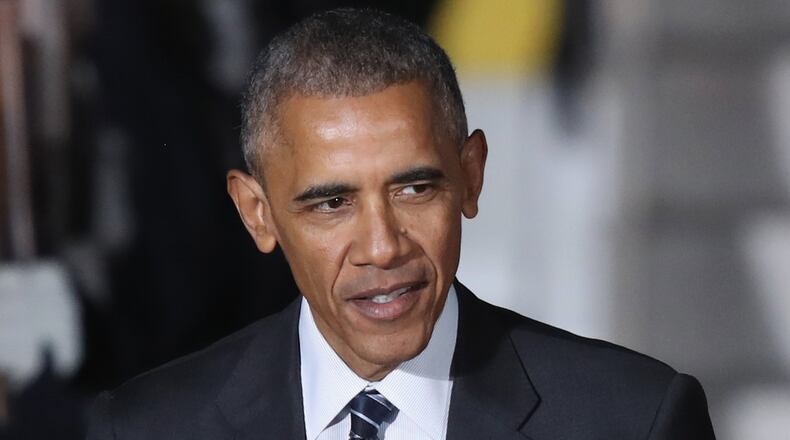President Barack Obama has pardoned 79 people, including four Georgia men, who were convicted of federal drug crimes, the White House announced Tuesday.
Obama has now pardoned 1,023 federal prisoners, most of them nonviolent drug offenders, although the list does include some people convicted of gun crimes. Obama's total represents more pardons than were issued by the past 11 presidents.
The White House said the group pardoned Tuesday will have to spend two more years in prison before they are freed. Many were serving life sentences.
“It makes no sense for a nonviolent drug offender to be serving decades, or sometimes life, in prison,” Obama wrote in a Facebook post. “That’s not serving taxpayers, and it’s not serving the public safety.”
The four Georgians who were pardoned this week:
- William Henry Dudley, 50, of Atlanta was convicted in Florida in 2006 of conspiracy to distribute more than 50 grams of a cocaine-based drug, possession of more than 50 grams of a cocaine-based drug and possession of a firearm by a convicted felon. He was sentenced to 20 years in prison to be followed by 10 years of supervised release. Instead of staying in prison until April 2023, his sentence will expire on Nov. 22, 2018, on the condition that he enrolls in a drug treatment program.
- Eddie James Reed, 46, of Albany pleaded guilty in the Middle District of Georgia in February 2007 to possession with intent to distribute more than 50 grams of a drug with a cocaine base and possession with intent to distribute five grams or more of a cocaine-based drug. He was sentenced to 21 years and 10 months in prison followed by five years of supervised release. Under the pardon, his sentence will now end on Nov. 22, 2018.
- Avery Hardy, 35, of Smithville in Lee County was sentenced to life in prison plus 10 years of supervised release for possession with the intent to distribute more than 50 grams of crack cocaine. Hardy's sentence will end Nov. 22, 2018, conditional on his enrollment in a drug treatment program.
- Efrem Berry, 49, of Americus was sentenced to 19½ years in federal prison, plus six years on supervised release, after he pleaded guilty on Feb. 27, 2007, to possession with intent to distribute "a detectable amount" of cocaine, possession with intent to distribute less than 50 kilograms of marijuana and possession with intent to distribute "a detectable amount" of MDMA. Obama reduced his sentence to 12 1/2 years, which would moved his release to two years from now.
For years, Obama has said strict sentences for drug offenses are excessive and some offenders go to prison for too long. He has tried to pressure Congress to fix what he sees as onerous sentencing by aggressively using his executive powers to address individual cases.
The administration expanded criteria for inmates applying for clemency, giving priority to nonviolent offenders who have had no problems while in prison, aren't affiliated with gangs and would have received shorter sentences if they had been convicted a few years later.
Also, his Justice Department in recent years has directed prosecutors to stop pursing harsh mandatory minimum sentences.
More pardons are expected before Obama leaves office in January, but administration officials said there will still be a number of clemency petitions pending when Donald Trump is sworn in as president.
In those cases, the Trump administration will decide whether to grant or reject them, said Deputy Attorney General Sally Yates.
Promising during the presidential campaign to crack down on crime, Trump criticized Obama for pardoning prisoners, warning that he was putting Americans’ safety at risk.
About the Author
The Latest
Featured


